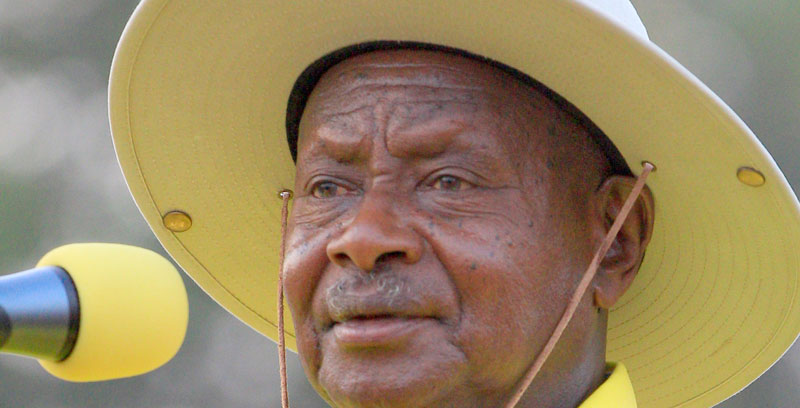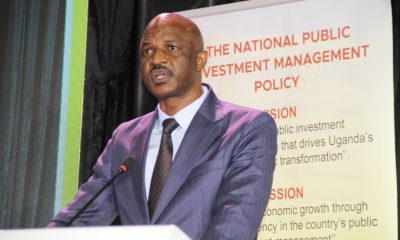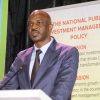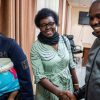Columnists
A country is not a farm
Mr. President, your successful farms in Kiruhura and Gomba offer little insight into what works in the maize gardens in Kasese and coffee plantations in Mbale, let alone in the banking and telecommunication sectors!
I feel lucky. Few people witness critical stages in their country’s economic transformation. I was (surprisingly) a conscious preschooler at the time Uganda became a “transition economy” (changing from a centrally planned system to a market economy system). The year was 1987 when Uganda began a long process of setting the structural transformations intended to develop a market-based economy.
I am a practicing economist at the time Uganda is trying to transform into a middle income economy. What a time to live! On a daily basis I listen to speeches and conversations by very ‘big’ people (and ‘small’ ones) about what needs to be done to transform Uganda into a rich economy. I get amazed.
Indeed as I was typing this, a friend sent me a social media message from a very important leader in this country commenting about something concerning the functioning of Uganda’s economy. We both agreed how naïve and unsophisticated this important person was. We also wondered how they performed the tasks in the very important office they had held.
It is Friedrich Hayek, one of the greatest economists to walk this planet, who once said, “The curious task of economics is to demonstrate to men how little they really know about what they imagine they can design.”
Mr. President, I know all your life you have been a man on mission. I have read your books. I have listened, keenly, to your speeches. You genuinely believe in human transformation and emancipation. You believe you were God-sent to transform your country, our country. Often I get the feeling, despite some mistakes you have made in past many years of your service to Uganda, you meant well, you mean well.
Meant well, failed much
In one of his obscure works, “Across the plains,” Robert Stevenson, a Scottish novelist, wrote, “Here lies one who meant well, tried a little, failed much: surely that may be his epitaph, of which he need not be ashamed.”
Lately, your mission is one and clear: to transform Uganda into a modern, prosperous and developed country. The specific target is more distinct: to transform the 68% (although the correct fraction is 69%) of Ugandan homesteads that are still in subsistence agriculture into commercial farmers.
Often you are quoted by the media explaining how you transformed your family’s livelihood — cattle farming — from the peasantry state you grew under in the 1960s to the multimillion dollar farm that has made you one of the richest farmers in Africa and beyond.
In July last year, while on a working tour to promote the Operation Wealth Creation (OWC) in Teso sub-region, and repeatedly during the campaigns to retain your coveted office, you said, “Your President is one of the least paid on the continent. Although I earn little from your government, I’m a rich man from agriculture. When I tell you that commercial agriculture is wealth, am telling you what I know.”
I have also seen you on TV teaching audiences across the country how to transform their gardens, taking them through the specific calculations. You love to call the financial analysis of enterprises by the popular jargon, ekibalo.
Your conviction is that since you managed to transform your own farm into a big, commercial oriented ranch, you qualify to teach other peasants how to do it. You also qualify to sit down somewhere in one of the trees in your expansive ranch and author national economic policies.
Choice of economic advisers
Mr. President, to borrow the words of Nobel Laureate in economics, Paul Krugman (he wrote this article in the January 1996 Harvard Business Journal), a country is not a company, or in this case, a farm.
What people learn from running a business will not help them formulate economic policy. The habits of mind that make a great business leader are not, in general, those that make a great economic analyst; an executive who has made $100 million (Shs.340 billion) is rarely the right person to turn to for advice about a $26 billion (Shs. 88 trillion) economy.
Mr. President, true you don’t gloss over the fact that, just like many of us, you had a very humble background. Secondly, it is also an indubitable truth that you finally made it through a combination of hard work, sacrifice, shrewd decision making, and perhaps luck as well.
Admittedly, many people believe that someone who has made a personal fortune will know how to make an entire nation more prosperous. You appear to me as not only the President of Uganda, but also the President of that group of people that correlate, on a one-to-one basis, personal success with smart policy advice.
I can even see it in your choice of economic advisers and key decision makers in some of the key institutions in the economy. I am not claiming that non-economist managers are stupid or that economists are particularly smart.
On the contrary, if the 10 top Ugandan business executives got together with the 10 leading economists, the least impressive of the former group would probably outshine the most impressive of the latter.
“Great man’s disease”
My point is that the style of thinking necessary for economic analysis is very different from that which leads to success in business or cattle farming. Mr. President, you seem to believe that your ability to solve problems in your farm can be applied to the national economy.
By extension, you have staffed ministries, departments and agencies (MDAs) that require economic analysis to inform decisions with hand-picked non-economist and paradoxically deploy economists in offices that don’t need them.
In his oracular article I have mentioned above, Krugman cites what he terms “great man’s disease” which happens when a famous researcher in one field develops strong opinions about another field that he or she does not understand, such as a chemist who decides that he is an expert in medicine or a physicist who decides that he is an expert in cognitive science.
The same syndrome is apparent in Uganda. Business owners, social workers, medical doctors, engineers etc. have been promoted to economic advisers, chairs of boards promoting investment, industry, trade etc. you and your appointees have trouble accepting that they must go back to school before they can make pronouncements in their new field.
I often hear you saying, for the simplest example, that the millions of Ugandans whom you are supporting under OWC do not need professional extension workers to advise them on agronomy, soil science, etc. That the extension work should be done by your Parish chief and soldiers, themselves not trained.
You often love to explain how in the past Parish chiefs and other local leaders performed such functions. Well, that is why the country is stuck in peasantry. Peasant minds cannot transform other peasants!
Economic policy mistakes
Mr. President, it is really surprising that after over half a century in national service you have not fully grasped the difference in complexity between the largest farm in Uganda and the national economy. Experience of your successful farms in Kiruhura and Gomba offers little insight into what works in the maize gardens in Kasese and coffee plantations in Mbale, let alone in the banking and telecommunication sectors.
The general principles on which an economy must be run are different — not harder to understand, but different — from those that apply to a farm, a business or a particular career. Krugman advises you and other business executives who want to become economic experts to first learn a new vocabulary and set of concepts.
Good business thinking and good economic analysis are oceans apart. Indeed it should be you, Mr. President, to know this better. Although it took you a few decades to transform the small family farm of Mzee Kaguta into the largest ranch in the region, the past 30 years of your stewardship have seen minimal transformation of Uganda’s economy.
In 1986, 71% of Ugandan families were in subsistence. Thirty years later, 69% of the families are still stuck in growing potatoes and vegetables for own consumption.
Again it is Krugman who wrote, “The next time you hear business-people propounding their views about the economy, ask yourself, have they taken the time to study this subject? If not, never mind how successful they have been in business. Just ignore them, because they probably have no idea what they are talking about.
Anyone still doubtful of this wisdom? Well, maybe you were permanently drunk when Crane Bank dived from being one of the most profitable and rapidly expanding banks in Uganda (and its chairman gracing the Forbes covers as one of the richest entrepreneurs in Africa) to the insolvent entity under regulator’s receivership.
Mr. President, and all other good people reading this, kindly leave economic analysis and economic policy making to economists. I know economists sometimes get their forecasts wrong just like medical doctors make errors. The difference is that unlike doctors whose errors kill a single person at a time, an economic policy mistake may kill thousands at once.
Comments






















